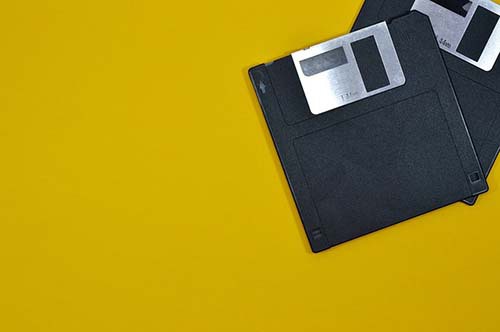In a digital skills class for Portland State University’s Book Publishing Program, the graduate students create websites from scratch, host and manage a domain, and practice collaboration, courage, and innovation as we make choices about the content and style of our personal and professional websites.
As a preteen, I played games on MS-DOS, saved hundreds of megabytes of angsty poetry to 3.5-inch floppy disks, and Mavis Beacon taught me to type. I dialed-up to access the web in order to download music from Napster. I liked computers and was good at using them. Unfortunately, computers were largely regarded as a hobby for guys who liked to tinker around in musty basements. In high school, I was never advised to take courses in computer sciences; all things tech were marketed toward men and boys.
Computer science has evolved into a critical skill in the twenty-first century, and educators have known for decades that digital literacy empowers learners. As a former elementary school teacher, I provided students with digital tools and took the time to teach basic coding skills. I watched them create interactive stories and video games with nothing but a text editor and the internet. Students’ commitment to their projects had everything to do with the satisfaction and enjoyment they got from their work. That same empowerment can, and should, be realized by publishing professionals.
Historically, publishers have created printed matter like books and newspapers, but today what and how we publish is largely digital. Karen Christiansen, founder of Berkshire Publishing, wrote that “anyone employed in publishing today should understand how code is written, and even know a computer language or two.” She talks about meeting “experienced professionals who feel like dinosaurs because up till now they got by doing things the way they always had.” Honing digital skills will increase the value you add to the projects you work on as a publishing professional.
While we are busy checking the weather, looking for love, and consuming book reviews, algorithms are coded to keep us on these platforms as much as possible, resulting in what Professor Shoshana Zuboff coined to be “surveillance capitalism,” and the exploitative “profiling and targeted advertising” detailed in a report put out by Norwegian organization, Forbrukarrådet. Zuboff says that “unequal knowledge about us produces unequal power over us.” In acquiring a basic understanding of the language lurking behind the scenes of the web, we can take back some of the control. One of the most responsible and accessible ways to push back against this blatant consumer manipulation is to intentionally work toward understanding the language of the computer scientists who create it.
After sharing “The Scary Power of the Companies That Finally Shut Trump Up,” Dr. Kathi Berens opened up our digital skills class for a discussion about the complexities surrounding digital media platforms, synthesizing the article with her belief that “basic code literacy is an extraordinarily empowering skill set that…gives users a level self-control and freedom that people don’t have if they rely entirely on third parties to represent their public speech.” Her point parallels one made by Michelle Goldberg in the aforementioned article: while she agrees with the decisions made that ultimately de-platformed the former President, she also states that people “don’t have a constitutional right to have their speech disseminated by private companies,” and that it is “dangerous to have a handful of callow young tech titans in charge of who has a megaphone and who does not.” We are not political leaders, but publishers are global leaders; how, and on whose terms, we use our voices matters.
I set a goal to reach proficiency in HTML and CSS within twelve weeks using codeacademy.com for three hours a week. Comment on this post with your digital literacy goals, and perhaps we can inspire each other to hold ourselves accountable!
I hope you will set a goal, though I acknowledge the many ways reality can interfere with this quixotic hope. There is a gap between the haves and have-nots regarding digital inequities. The Brookings Institution reported last July that “tens of millions of American households cannot access the digital economy due to physical gaps in local broadband networks, unaffordable subscription plans and personal devices, and a lack of digital skills.” COVID-19 has exacerbated this divide. The absence of reliable technology significantly impedes access to the empowerment of digital literacy, leaving those who have-not—particularly those groups that are already marginalized—unjustly vulnerable.

